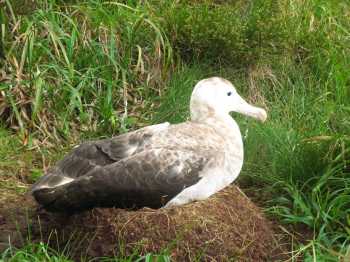Sarah Gall and Richard Thompson (Marine Biology & Ecology Research Centre, Plymouth University, United Kingdom) have reviewed the impact of debris on marine life, including seabirds, in the Marine Pollution Bulletin. Their literature review shows that 10 species of ACAP-listed albatrosses and petrels, notably the Laysan Albatross Phoebastria immutabilis, on the IUCN threatened or near-threatened lists have been reported in the literature as being impacted by marine debris through entanglement or ingestion. However, it is known that several of the remaining 20 ACAP-listed species, including the Critically Endangered Tristan Albatross Diomedea dabbenena, have also been impacted in this way.
The paper’s abstract follows:
“Marine debris is listed among the major perceived threats to biodiversity, and is cause for particular concern due to its abundance, durability and persistence in the marine environment. An extensive literature search reviewed the current state of knowledge on the effects of marine debris on marine organisms. 340 original publications reported encounters between organisms and marine debris and 693 species. Plastic debris accounted for 92% of encounters between debris and individuals. Numerous direct and indirect consequences were recorded, with the potential for sublethal effects of ingestion an area of considerable uncertainty and concern. Comparison to the IUCN Red List highlighted that at least 17% of species affected by entanglement and ingestion were listed as threatened or near threatened. Hence where marine debris combines with other anthropogenic stressors it may affect populations, trophic interactions and assemblages.”

Female Tristan Albatross Incubating on Gough Island, photograph by Marienne de Villiers
With thanks to Phelisa Hans for information.
Reference:
Gall, S.C. & Thompson, R.C. 2015. The impact of debris on marine life. Marine Pollution Bulletin doi:10.1016/j.marpolbul.2014.12.041.
John Cooper, ACAP Information Officer, 20 February 2015

 English
English  Français
Français  Español
Español